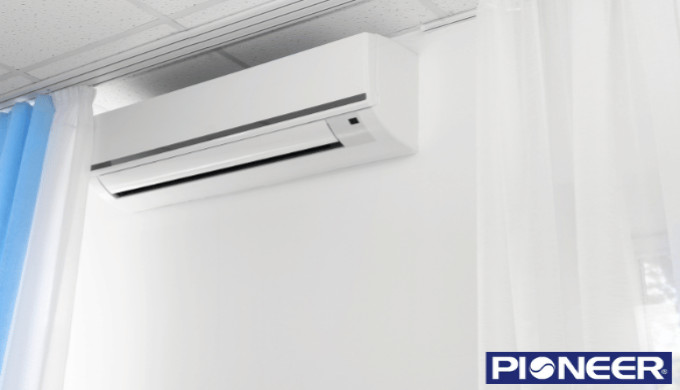
Factors to Consider When Choosing The Mini Split System For Your Home
2023-12-01 04:24:55As the demand for efficient and customizable heating and cooling solutions rises, many homeowners turn to mini split systems.
These versatile systems offer a range of benefits, including energy efficiency, personalized climate control, and ease of installation. However, choosing the right pioneer mini split system for your home requires careful consideration of various factors.
In this guide, we`ll walk you through the decision making process to help you make an informed choice that suits your needs.
Factors To Consider:
-
Assess Your Room Size:
One of the first and most crucial considerations when selecting a mini split system is the size of the space you intend to cool or heat. Different units are designed to accommodate varying room sizes, so measure the square footage of the area accurately. This information will guide you in choosing a system with the appropriate cooling and heating capacity.
-
Energy Efficiency Ratings:
Mini split systems are known for their energy efficiency, but not all units are created equal. Look for designs with high Seasonal Energy Efficiency Ratio (SEER) ratings and Heating Seasonal Performance Factor (HSPF). These ratings indicate the system`s efficiency in cooling and heating, respectively. A more efficient system can result in lower energy bills and reduced environmental impact.
-
Consider Your Climate:
The climate in your region plays a significant role in determining the type of mini split system you need. Living in an area with extreme temperatures may require a system with higher heating or cooling capacity. Some units are designed to perform well in colder climates, ensuring efficient heating even in freezing temperatures.
-
Installation Considerations:
Mini split systems offer flexibility in terms of installation. Wall mounted, ceiling cassette and floor standing units are common options. Consider the layout of your space and the aesthetics you prefer when choosing the installation type. Additionally, consider whether a single zone or multi zone system suits your needs, as this will impact the number of indoor units required.
-
Professional Installation:
While some homeowners opt for a DIY approach, professional installation is highly recommended. A certified technician can ensure the system is installed correctly, maximizing its efficiency and lifespan. Moreover, professional installation often comes with warranties that provide your investment peace of mind and protection.
-
Maintenance and Serviceability:
Consider the ease of maintenance and serviceability when choosing a mini split system. Units with easily accessible filters and components simplify routine maintenance tasks, ensuring the system operates at peak performance. Check for user friendly features that facilitate cleaning and troubleshooting.
-
Budget Considerations:
Last but not least, establish a budget for your mini split system. While these systems can be an upfront investment, long term energy savings, and efficiency make them cost effective. Compare prices, features, and warranties to find a plan that aligns with your budget and provides the best value for your money.
Mini Split Maintenance Tips for Optimal Performance
Mini split systems have become popular for homeowners seeking efficient and customizable heating and cooling solutions. Regular maintenance is crucial to ensure these systems operate at their best. Let`s provide a comprehensive overview of mini split maintenance tips to help you extend the lifespan of your unit and maintain optimal Performance.
-
Regular Cleaning:
Keep the exterior of the indoor and outdoor units clean from dust, dirt, and debris. Use a soft cloth or a brush to clean the surfaces gently. Ensure that there are no obstructions around the outdoor unit, such as plants or debris, to allow for proper airflow.
-
Check and Clean Air Filters:
Air filters play a key role in the efficiency of a mini split system. Check the filters regularly and clean or replace them as needed. Dirty filters can reduce airflow, strain the system, and lead to increased energy consumption. Cleaning or replacing filters every one to three months is a good rule of thumb.
-
Inspect and Clean Coils:
Both the indoor and outdoor coils should be inspected and cleaned periodically. Dust and dirt can accumulate on the waves, hindering heat exchange. Gently scrub the coils using a soft brush or a vacuum cleaner with a brush attachment. Be cautious not to damage the fins during the cleaning process.
-
Examine the Condensate Drain:
Check the condensate drain regularly to ensure it is not clogged. A clogged drain can damage water and affect the system`s efficiency. Clear any blockages and consider adding an algaecide tablet to prevent algae growth in the gutter.
-
Inspect Insulation on Refrigerant Lines:
Ensure that the insulation on the refrigerant lines is intact. Damaged insulation can lead to energy loss and reduced efficiency. Replace any damaged insulation to maintain proper temperature control.
-
Verify Thermostat Settings:
Check and verify the thermostat settings to ensure they match your comfort preferences. If you notice discrepancies or the system is not responding as expected, consult the user manual or seek professional assistance.
-
Schedule Professional Check Ups:
While homeowners can perform many maintenance tasks, it`s essential to schedule regular professional check ups. Certified technicians can conduct a thorough inspection, identify potential issues, and perform duties requiring specialized knowledge or tools.
-
Inspect Electrical Components:
Ensure all electrical components, including wiring and connections, are in good condition. Contact a professional technician for repairs if you notice any signs of wear or damage, such as frayed wires or loose connections.
-
Keep Surrounding Areas Clean:
Maintain a clean and clutter free environment around both the indoor and outdoor units. This helps prevent debris from entering the system and ensures unobstructed airflow.
-
Monitor Performance:
Regularly monitor the Performance of your mini split system. Keep an eye on any unusual sounds, odors, or cooling or heating efficiency changes. Promptly address any issues or seek professional assistance if needed.
In conclusion, selecting the right mini split system for your home involves carefully evaluating room size, energy efficiency, climate considerations, and installation preferences. By carefully considering these factors and, when in doubt, consulting with a professional for a mini split installation near you, you can ensure optimal comfort and efficiency in your home`s heating and cooling system. Make an informed decision and enjoy the benefits of a personalized and energy efficient climate control solution tailored to your unique needs. Nonetheless, proper maintenance is key to ensuring your mini split system`s longevity and optimal Performance. Incorporating these maintenance tips into your routine allows you to enjoy a comfortable and energy efficient home environment. Remember, a combination of regular DIY maintenance and professional check ups will help keep your mini split system running smoothly for years to come.
...
